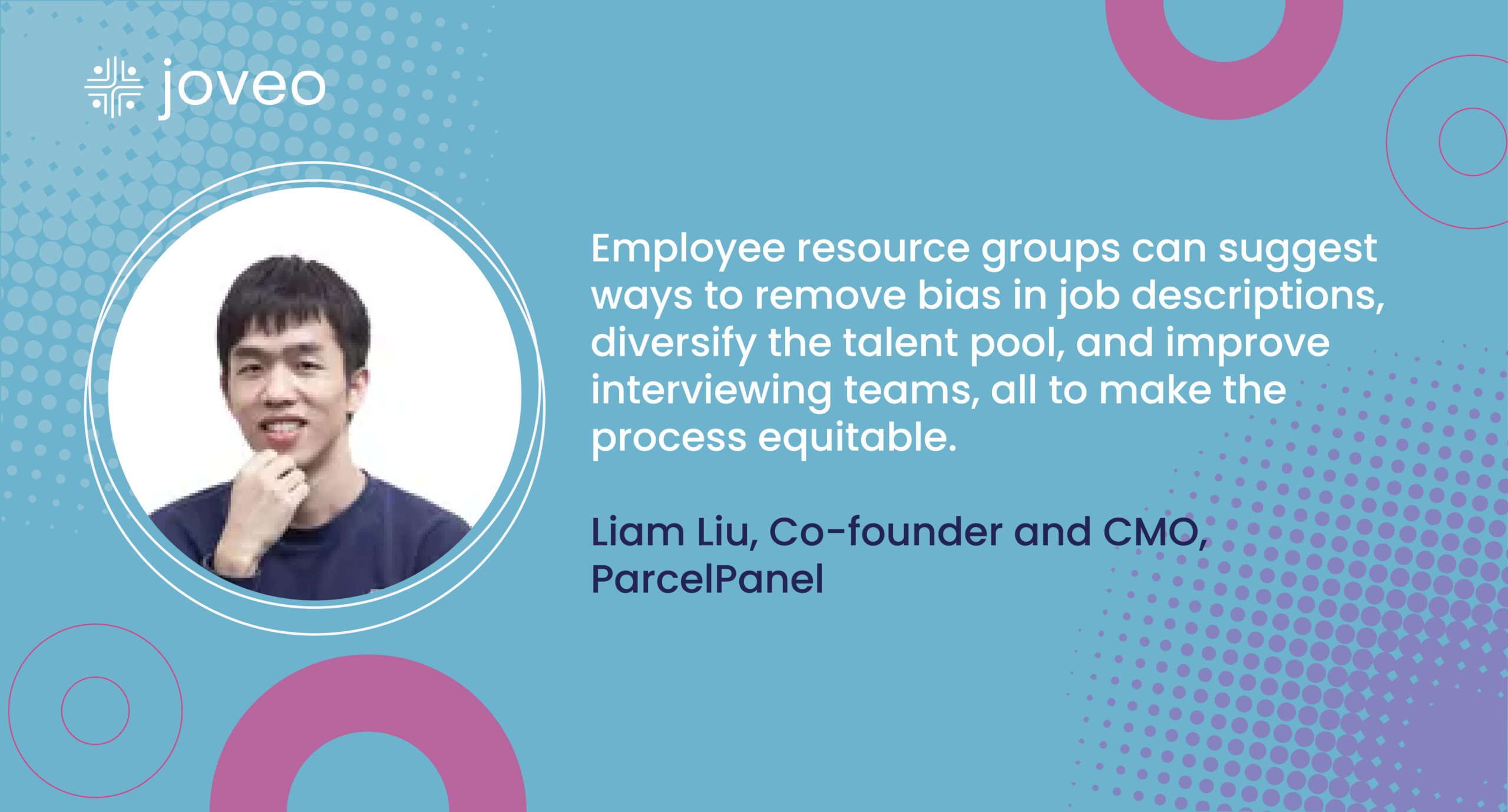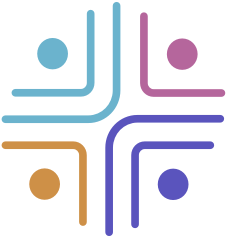From supercharging your interview process to asking for advice from experts, here are answers to the question, “What are your most helpful strategies that make the talent acquisition process more equitable?”
Interview for Cultural Awareness, Identity Strength, and Social Purpose
Interviewers can tap into potential with good questions. Instead of emphasizing time and efficiency, give candidates an opportunity to show cultural awareness, identify strengths, and show social purpose.
Candidates from underrepresented groups are often committed to a purpose larger than themselves, and they aim to lead the way for the next generations. The opportunities they have today result from their ancestors’ commitment to the future, and they, too, want to play a role in advancing their communities.
Ask candidates about their values, what they believe in, and who has helped them get where they are today. If your organization values diverse and inclusive teams, ask about their interest or experience in this area. Ask how they will contribute to diversity, equity, and inclusion initiatives.
These are good questions to ask everyone. Standard questions and exams don’t tap the potential a candidate’s answers may reveal—which is ultimately leadership potential.
Martha Caldwell, EVP, DEI Learning and Development Strategist, iChange Collaborative

Reiterate Goals Through a Clear Policy
The first move that will define both reach and impact, as well as commitment and consistency toward equity in your talent acquisition, is reiterating fair practices through your hiring policy. When your company policy clearly defines a process where fair and impartial practices are not just recommended but reiterated as imperative and even enforced, these practices will bind everyone involved.
Managers and leaders can then follow through and take responsibility to ensure that these fair practices reflect in every stage of the recruitment process. Toward this, the policy can also include candidate feedback on if they have found the entire hiring cycle to be free from prejudice in any form.
Riley Beam, Managing Attorney, Douglas R. Beam, P.A.
Track Metrics to Identify Sources of Bias in Your Process
Discrimination in the hiring process is rarely intentional, but that doesn’t mean it doesn’t exist. If your top candidates for a role consistently end up being homogenous, it’s likely you have an unconscious or structural bias preventing the process from being truly equitable. These biases are often invisible to those who aren’t affected by them, which makes them difficult to spot if you don’t already have a diverse team.
Using data is one way to bring these issues to light. Examine candidate demographics for each stage of the process to identify where they’re dropping out or being screened out of consideration. For example, if your initial applicant pool is diverse but the candidates who received interviews aren’t, that is a likely sign of bias impacting the screening process and you can focus your attention there to determine why this is happening and how to correct it.
Archie Payne, CEO, Caltek Staffing

Use Pre-hire Skills Tests for All Candidates
One of the best ways to have an equitable talent acquisition process is to implement pre-hire skills assessments for all candidates. We struggled with hiring content writers and editors for our marketing agency and realized that we needed a system that would allow us to look past portfolio samples and hire writers who might not be as experienced as others, but just needed someone to give them a chance to shine.
This led to the development of our current SaaS which allows us to test every candidate with the same pre-hire assessment, no matter the role we are hiring. We have expunged bias from our hiring systems, as everyone is doing the same test, they are asked the same interview questions, and they are evaluated only on their skills, not previous experience, recommendations, or portfolios.
Gordana Sretenovic, Co-founder, Workello
Overcome Unconscious Bias in Candidate Review
Many times, employers don’t know what kind of discrimination exists while hiring candidates for positions in the company. This is called unconscious bias in a candidate review. It is dangerous because maybe you don’t know where you are making a mistake, but the candidate does.
It can make the talent acquisition process more difficult instead of equitable. Well, unconscious bias is so common, and it begins with writing job descriptions. For example, employers ask about demographic information, age, race, religion, and others. This way, an employer already screens out some candidates, even if they are more talented than those who fit the description.
To overcome unconscious bias in candidate reviews, make the talent acquisition process more equitable. For this, follow anonymous hiring. In this type of hiring, any identifying information about the candidate, such as name, age, location, and address, is not asked or hidden.
Saikat Ghosh, Associate Director, HR and Business, Technource
Consider a Diverse Range of Backgrounds and Experiences
One way to make the talent acquisition process more equitable is to be sure you’re considering candidates from a wide range of backgrounds and experiences.
Too often, hiring managers rely on traditional recruitment methods that may not reach diverse candidates. It’s important to actively seek and attract candidates from underrepresented groups to create a more inclusive workplace. This can be accomplished through outreach and recruitment efforts, as well as by examining and addressing any biases in the hiring process, such as language in job postings or interview questions that may unintentionally exclude certain candidates.
Kimberley Tyler-Smith, VP, Strategy and Growth, Resume Worded
Hire Based on Merit and Experience
At my company, we’ve always had a policy where there’s no degree requirement. We like to see it, but if not, that doesn’t mean you can’t interview here.
We judge and hire based on the merit of how a candidate interviews and their overall work experience. So much of what I learned in college was great for cocktail parties or being wise on tour in some foreign country. But so much of it isn’t applicable to what I do in my day-to-day job.
Some of the most brilliant people I know went to community college, held two jobs, or didn’t go to school. And some of the dumbest people I know graduated from Harvard and everything in between. Historically, some of the most successful entrepreneurs didn’t have a college degree at all.
As we go forward, job openings that require a bachelor’s degree should continue to be examined, and this is something that I don’t think makes a ton of sense for most companies.
Oz Rashid, Founder and CEO, MSH
Seek Advice from Employee Resource Groups
Employee resource groups work toward the company’s best interests, especially in helping it achieve its DE&I goals. Taking recommendations from them on streamlining the talent acquisition process is a key step in making the process more equitable. Employee resource groups can suggest ways to remove bias in job descriptions, diversify the talent pool, and improve interviewing teams, all to make the process equitable.
Liam Liu, Co-founder and CMO, ParcelPanel

Let’s talk about how Joveo can help you scale your talent acquisition efforts. And follow us on Twitter and LinkedIn, where we’re always working to help you get the most out of your recruitment advertising.















